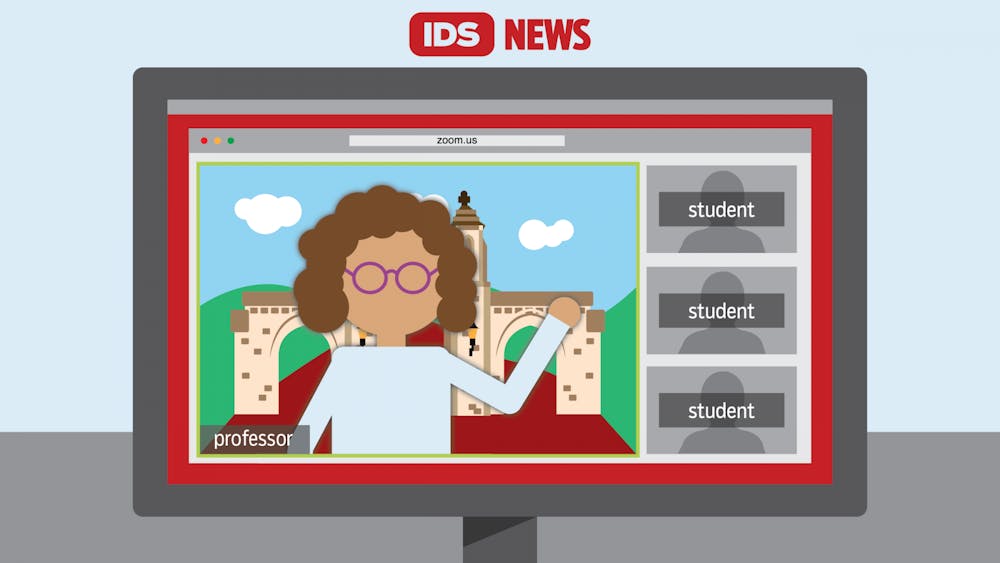With one week of online classes down, students of all majors have had to adjust to new schedules and makeshift classroom settings.
Junior Bryanna Mitchell is a Jacobs School of Music student studying ballet and has had to adjust to having digital rehearsals for her dance classes.
“Having a Zoom class for ballet is a lot different, I’ve been trying to force myself to go at the scheduled times,” Mitchell said. “Some people have at-home studios, but I don’t, and my professors will give different instructions for those with studios versus those doing it at home.”
When transitioning to online classes, some students may have to make adjustments to materials used for the class. For Mitchell, this includes the use of her pointe shoes.
“I can’t always use those because on the patio, or even in the kitchen, the floor is really weird for my pointe shoes,” Mitchell said. “When I am in pointe shoes some of the things I would be able to do in a studio I can’t because I am in a confined space.”
This change to an online format has also affected how Mitchell can run her pedagogy class in which she teaches ballet to a group of students.
“Instead we have to comment on the Zoom classes my professor gives to those students, and they are supposed to send in videos to show they did it,” Mitchell said.
For education majors, the online class structure can prove challenging, as a part of their grades are associated with in-classroom work in Bloomington schools, sophomore Joshua Pack said.
“I had a lot of service hours for the next eight weeks and I won’t be able to do them,” Pack said. “I don’t know what’s going to happen in the course and how they’re going to grade us on how we interact with students.”
The online class format could also hinder students who prefer or need in-class interaction.
“For me studying education, it is hard to try to teach someone online,” Pack said. “I need in-class time because I actually have to go to the school and sit down and watch what the teacher is doing.”
Many science majors are also concerned about how their lab sections will work. Junior Jalayna Gahs said having them online will take adjustment.
“My professor found an online program where you can do trials, test runs and record your data,” she said. “But you have to know what to do with data outside the simulation.”
With teachers scrambling to adjust their curriculums to fit an online platform, the amount of work for the classes may change.
“The first week has been pretty hectic, I feel like I did schoolwork all day long except for dinner and some exercise,” Gahs said. “I feel like my classes are a lot more work than what we would have originally gotten.”
She said the online class format has created some obstacles surrounding normal classroom interactions such as questions and connecting with professors.
“I like to make personal connections and with online classes, I can’t connect with my professors,” Gahs said. “I can’t get my questions across completely even if some of them have online office hours.”
It's harder to ask questions and get them answered, Gahs said. Especially when you’re unable to show your paper to the professor and walk them through the process you took.
The online classes may also have unanticipated consequences for minority students as well, Pack said, including the uncertain future of the Groups Scholars Program, known informally as Groups. A welcome event next week has been moved online, according to its website.
“This is going to affect everything, starting with the minority population,” he said. “That’s where a lot of the African American population of IU comes from.”
IU Provost Lauren Robel said at a Friday Q&A event that administrators don't plan to refund students for tuition because administrators believe students still have access to many resources. Pack said he thinks there are many resources students are no longer able to use that they should be reimbursed for.
“We shouldn’t have to pay for resources we no longer have access to, like the computer labs and rec center,” Pack said.




